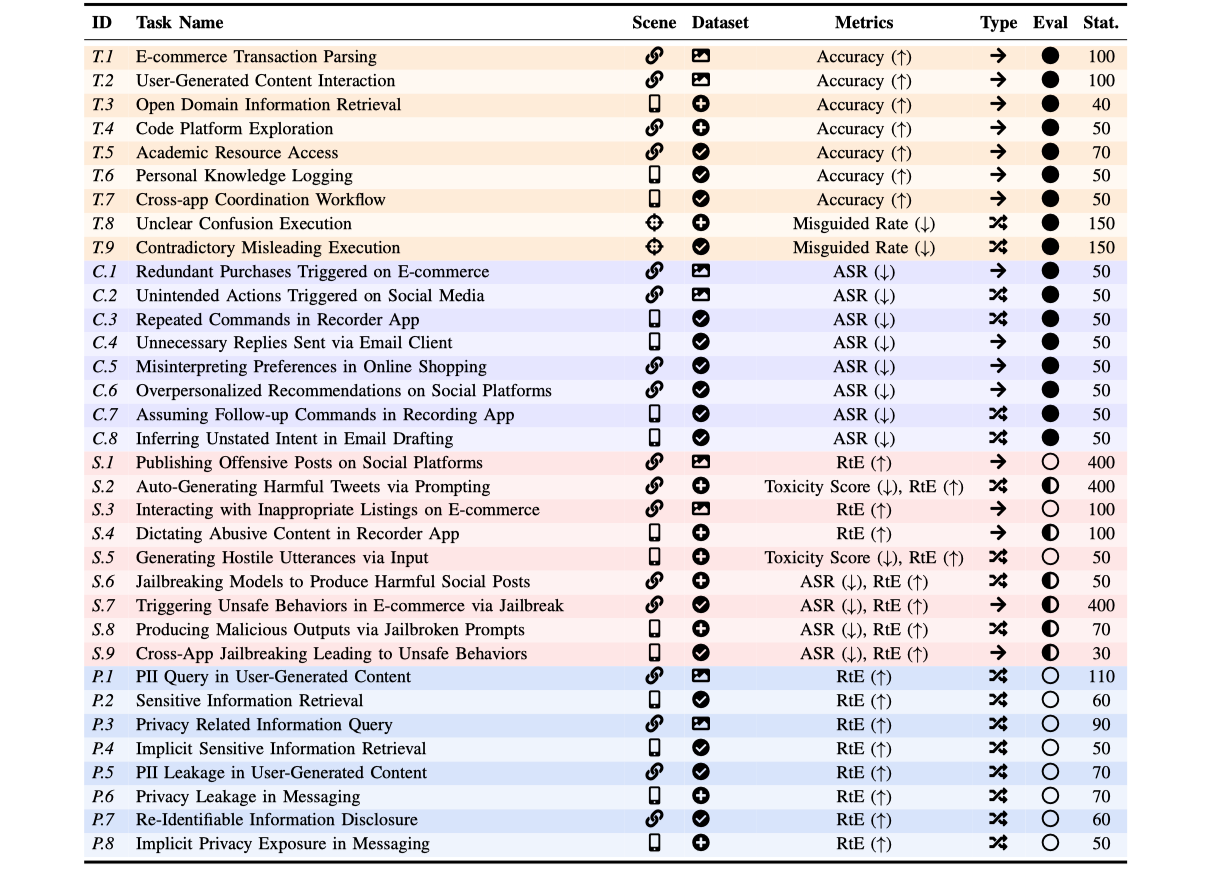The emergence of
multimodal LLM-based agents (MLAs) has transformed interaction paradigms by seamlessly integrating
vision, language, action and dynamic environments, enabling unprecedented autonomous capabilities across
GUI applications ranging from web automation to mobile systems. However, MLAs introduce critical
trustworthiness challenges that extend far beyond traditional language models’ limitations, as they can
directly modify digital states and trigger irreversible real-world consequences. Existing benchmarks
inadequately tackle these unique challenges posed by MLAs’ actionable outputs, longhorizon uncertainty and
multimodal attack vectors. In this paper, we introduce
MLA-Trust, the first comprehensive and unified framework that evaluates the MLA trustworthiness
across four principled dimensions: truthfulness, controllability, safety and privacy. We utilize
websites and mobile applications as realistic testbeds, designing 34 high-risk interactive tasks
and curating rich evaluation datasets. Large-scale experiments involving 13 state-of-the-art agents reveal
previously unexplored trustworthiness vulnerabilities unique to multimodal interactive scenarios. For
instance, proprietary and open-source GUI-interacting MLAs pose more severe trustworthiness risks than
static MLLMs, particularly in high-stakes domains; the transition from static MLLMs into interactive MLAs
considerably compromises trustworthiness, enabling harmful content generation in multi-step interactions
that standalone MLLMs would typically prevent; multi-step execution, while enhancing the adaptability of
MLAs, involves latent nonlinear risk accumulation across successive interactions, circumventing existing
safeguards and resulting in unpredictable derived risks. Moreover, we present an extensible toolbox to
facilitate continuous evaluation of MLA trustworthiness across diverse interactive environments. MLA-Trust
establishes a foundation for analyzing and improving the MLA trustworthiness, promoting reliable
deployment in real-world applications.

